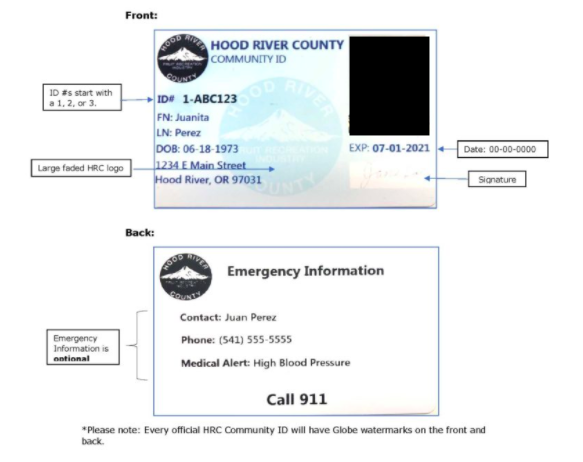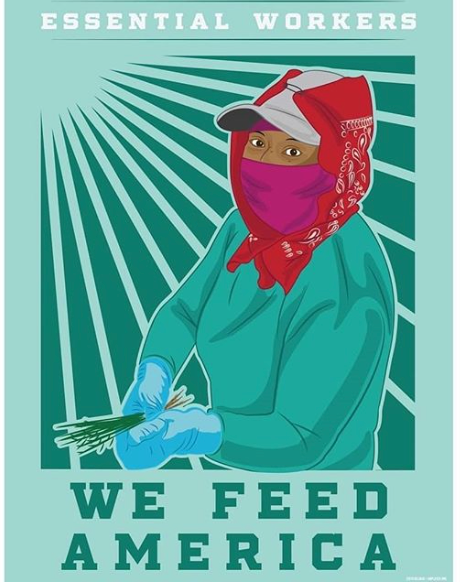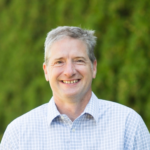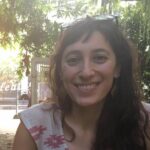Covid-19 Spurs Hispanic Center to Close Enduring Inequities Through Policy
The impacts of Covid-19 reach further than we expected, revealing fragilities in our health care system, impacting our economic security, and exposing the already present inequities in our communities. The Columbia Gorge region in Oregon and Washington has many critical programs in place to support vulnerable communities. To address inequities in a lasting way, we need to change the policies that create them. In other words, we need to serve the people standing in line today while also working to shorten the line for tomorrow.
Supporting the Latino Community

Agriculture is one of the primary economic drivers in the rural Columbia Gorge region, and it has been for generations. Every year, our five-county region produces more than 250,000 tons of apples, pears, and cherries. All of this fruit is picked, sorted, and packed by hands belonging almost exclusively to migrant and seasonal farmworkers (MSFWs).
About 10,000 to 12,000 MSFWs come to work in the Columbia Gorge each year, traveling primarily from Mexico (with some from Central and South America) and following the harvests north through California. Some return to the same orchard year after year, others just one or two, and still others stay to make this home. Over the past 25 years, the Gorge has seen a 30% increase in year-round Latino community members.
Many community organizations have developed programs over the years to support MSFWs and the year-round Latino community. Migrant Head Start was the first program to serve children of MSFWs in the country. Nuestra Comunidad Sana, a multi-program agency, was launched in the early 1990s to help MSFWs navigate the local system while they worked in the orchards. These efforts were designed by established organizations and were intended to help MSFWs and year-round residents survive within the community, beyond the harvest seasons.
In the past several years, more initiatives have been created by Latino community members that are designed to not just help fellow Latinos survive but to empower and foster sovereignty. For example, Radio Tierra was launched 10 years ago and has become a powerful information, communication, and entertainment vehicle in the Gorge. In another example, Promoviendo Prosperidad (Promoting Prosperity) a program of The Next Door, Inc. supports Latino community members who wish to start or expand a business. Currently PP supports more than 70 Latino-owned businesses in the Columbia Gorge.
Downstream Programs vs. Upstream Policy Transformation
We as a community still have much work to do on our journey of equity, inclusion, and ultimately, social justice. The above examples demonstrate a trajectory of progress, but they are generally programs intended to address downstream conditions affecting the immigrant community, not the cause of those conditions. In order to truly create change, we need to change the policies that result in those conditions.
So what kinds of policies have necessitated the downstream programs we already have in place? The North American Free Trade Agreement (NAFTA), now the US-Mexico-Canada Agreement (USMCA), came into effect into 1994. NAFTA made it unprofitable to farm in Mexico, resulting in large waves of immigration north. The minimum wage in Oregon is $11.25 an hour, higher than the national $7.25, but even this is not enough for families to survive. NAFTA and the minimum wage are national (and multinational) policies, and their impact has created the need for local downstream programs.
As community leaders, we can surely advocate for change on the federal level by working with national coalitions, contacting our representatives and senators, and joining national movements. However, we have greater power to create change at home, making policies that reflect our ideals of an equitable, inclusive, and just world. We’re already taking steps locally in that direction.

Community advocates including The Next Door have partnered with Hood River County (HRC) to launch the Hood River County Community ID card: a form of photo identification issued by the county, accepted by local agencies, including law enforcement, and available and accessible to all people who can sufficiently demonstrate their identity and their residency in the county. Launched in the fall of 2019, it is the first of its kind in the Northwest.
For an annual $20 sliding scale fee, the Community ID card is more than just a symbol of diversity, equity, and inclusion; local ID is a powerful tool that results in actual, tangible inclusion for marginalized community members, while eliminating barriers they face on a daily basis. This Community ID card is accepted as proof of identity by local government agencies, banks, the post office, primary care clinics, pharmacies, libraries, and notaries. It can also be used for discounts at local businesses. It enhances connections to community and feelings of belonging in tangible and practical ways.
In addition to the HRC Community ID card, there are other local policies we have the power to influence. We can work with local leaders to create more affordable housing in the community and to ensure agricultural land stays zoned for agriculture rather than development. We can advocate for the city councils to waive facility fees for activities that promote health, such as the local farmers’ market. We can build relationships with the local and state policymakers like our legislative representatives who are our friends and neighbors, and who have the ability to change state policy.
State Representative Anna Williams (District 52), who lives in Hood River, has been instrumental in advocating for increased funding from the State of Oregon to support migrant and seasonal farmworkers in this year of Covid-19. We continue to advocate for safer housing, PPE, and wage relief for agricultural workers who must quarantine or isolate due to Covid-19.
Covid-19: Challenges & Solutions
Among many pressing needs, Covid-19 has exposed the urgency for local organizations to improve access to information. As agencies, providers, and organizations work from home and reduce in-person staffing, it has become clear that too many organizations don’t actually have policies and practices set up to communicate in Spanish. While they may translate their written materials and handouts, they don’t have enough Spanish- speaking staff to take phone calls or provide virtual supports. This negatively affects both employees and the community at large.
We have the power to improve information access by:
- creating organizational hiring policies in our hospitals, nonprofits, and CBOs (community-based organizations) that reflect the community they serve, and
- writing organizational communication policies to effectively get information across in the appropriate language.
These changes will require commitment by organizations and collaboration between bilingual/bicultural community members, plain language experts, and professional translators. While we have begun this work, we’re not quite there yet.
When schools began distance learning in early April, that distance was too big of a gap for many students to overcome. Nearly every local school district (10 in total) provided tablets for every student. This took care of the device gap, but lack of access to the Internet remains an issue.
In this rural and mountainous region, the Internet is simply not available everywhere, making it impossible for many students — up to 10% in some districts — to participate in school. School districts concerned about a larger than typical summer slide and most summer school programs, especially those that serve children of migrant and seasonal farmworkers, have secured tablets and hotspots to conduct summer school classes onsite in orchards and in farmworker camps.
As of June 9, 2020, Oregon Gov. Kate Brown allocated $20 million for rural broadband throughout the state, intending to close the education gap. This is a significant policy step toward equity and social justice, but it will take months to fully implement. It also begs the question, how will we maintain equitable access beyond this crisis? Many community advocates have begun strategizing on how to redefine Internet access as a basic utility, just like water, electricity, etc.
Covid as Catalyst

As the number of Covid-19 cases increases in the Gorge, race and justice protests fill our news feeds, and small businesses struggle with reopening, all three crises continue to illuminate local gaps, barriers, and injustices. While many responses to these crises have been positive, many advocates are fearful that they will be short-lived.
In response, we — collectively, the Healthy Gorge Initiative and partners — are working to build the structures necessary to maintain lasting change to support our most vulnerable communities, improve equity, and create social justice. For example, the Esencial public messaging campaign highlighting the role of agricultural workers plans to run through the end of the year, long after most workers leave the region. Similarly, the Gorge Community Response Fund led by the Healthy Gorge Initiative is beginning to pivot toward a strategy to support the nonprofit sector beyond the pandemic. And, multiple partners are designing strategies to support organizations, including local city councils and county commissions, interested in making their policies and practices more equitable and just through the Gorge Health Equity Collaborative.
To see this happen, we need to continue having hard conversations, supporting our existing programs, and advocating for policy change on the local level, where we have the power to amplify our voices.
 Paul Lindberg is a Collective Impact Health Specialist for the rural Columbia River Gorge Region in Oregon, a unique role recognized by Robert Wood Johnson Foundation in awarding the Columbia Gorge its Culture of Health Prize in 2016. Lindberg has worked with community organizations for more than 25 years addressing community-based issues. Lindberg sits on the Board of the Columbia Gorge Health Council/CCO; he is a TEDMED Research Scholar, and a member of the Robert Wood Johnson Foundation’s Culture of Health Prize National Advisory Group, helping review and select prize-winning communities.
Paul Lindberg is a Collective Impact Health Specialist for the rural Columbia River Gorge Region in Oregon, a unique role recognized by Robert Wood Johnson Foundation in awarding the Columbia Gorge its Culture of Health Prize in 2016. Lindberg has worked with community organizations for more than 25 years addressing community-based issues. Lindberg sits on the Board of the Columbia Gorge Health Council/CCO; he is a TEDMED Research Scholar, and a member of the Robert Wood Johnson Foundation’s Culture of Health Prize National Advisory Group, helping review and select prize-winning communities.
 Judy Bankman is an Oregon-based consultant and writer focusing on issues of public health, health equity, and sustainable food systems. In her role as Communications Specialist with the Healthy Gorge Initiative, she works to increase understanding of collaborative efforts to improve health equity within the Gorge community on the local, regional, and national levels. Her writing has been published by Civil Eats, The Counter, Food Tank, and the Food Climate Research Network.
Judy Bankman is an Oregon-based consultant and writer focusing on issues of public health, health equity, and sustainable food systems. In her role as Communications Specialist with the Healthy Gorge Initiative, she works to increase understanding of collaborative efforts to improve health equity within the Gorge community on the local, regional, and national levels. Her writing has been published by Civil Eats, The Counter, Food Tank, and the Food Climate Research Network.
